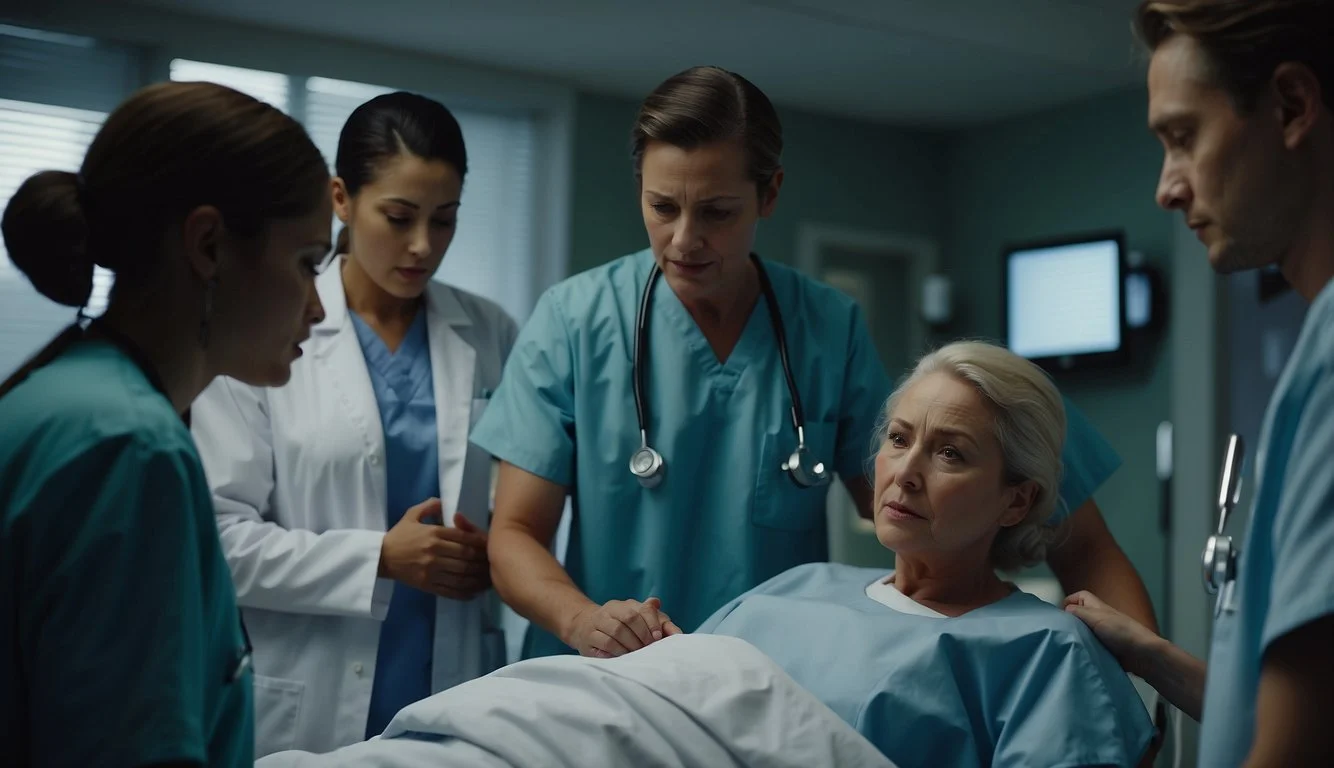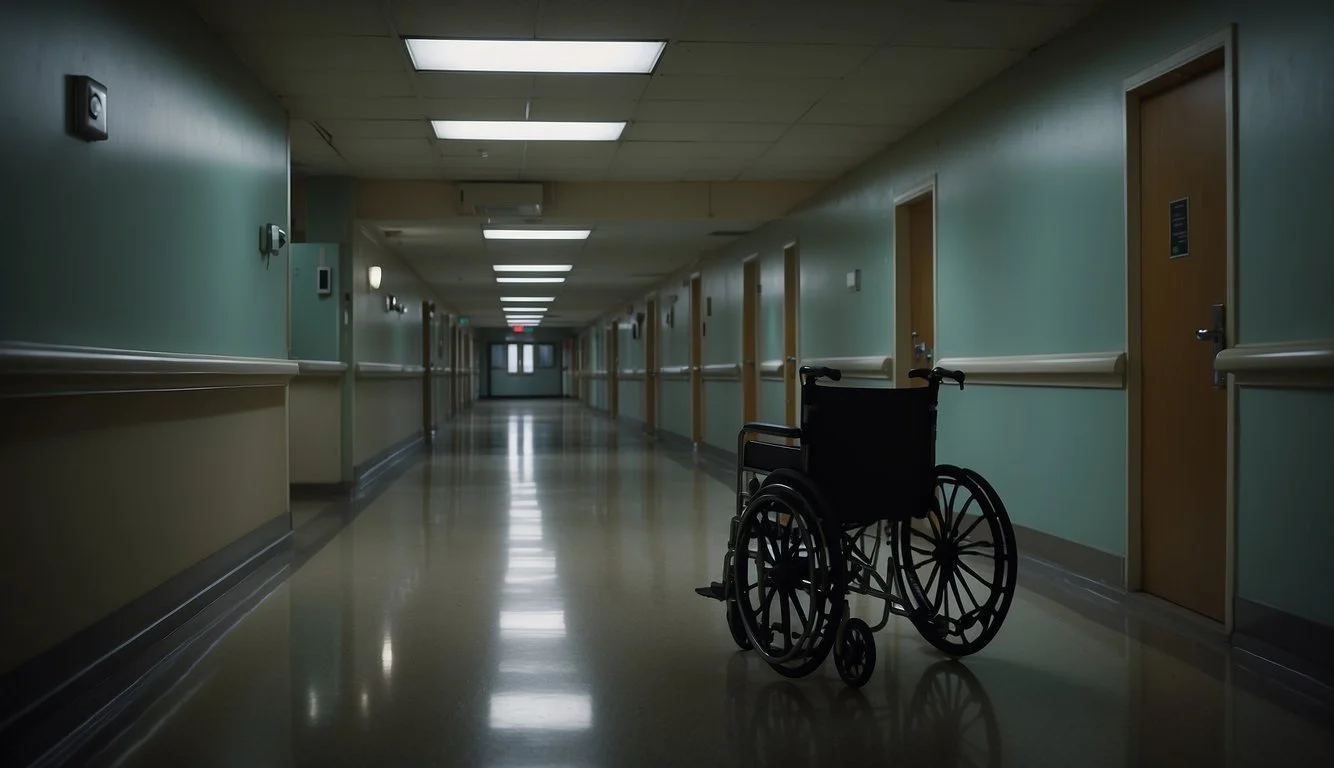Documentary Review: Collective (2019)
A Gripping Investigation into Journalistic Integrity
"Collective" (2019) is a riveting Romanian documentary that unveils the dark underbelly of a nation's healthcare system through meticulous journalism. Directed by Alexander Nanau, this film investigates the aftermath of a tragic Bucharest nightclub fire, revealing systemic corruption and severe negligence. Viewers follow a team of journalists from the sports daily Gazeta Sporturilor as they unearth the layers of deceit affecting Romanian healthcare.
The film not only captures the grim reality faced by the victims but also underscores the crucial role of a free press in holding power accountable. The intricate storytelling and shocking revelations keep the audience engaged, drawing parallels to investigative classics like "All the President's Men." "Collective" offers a compelling look at the power dynamics and human costs of corruption, making it a must-watch for anyone interested in real-world exposés.
Background on 'Collective'
The documentary Collective explores the aftermath of a tragic nightclub fire in Romania, highlighting systemic corruption within the public healthcare system. Directed by Alexander Nanau, the film underscores the importance of investigative journalism in exposing hidden truths.
Origins and Filmmaking Process
Collective originated from the real-life tragedy of the Colectiv nightclub fire in Bucharest on October 30, 2015. This disaster claimed 64 lives and prompted public outcry over government negligence and corruption. Filmmaker Alexander Nanau began capturing the story in its immediate aftermath.
Nanau followed journalists from Gazeta Sporturilor as they uncovered deep-rooted corruption affecting Romanian healthcare. The documentary was shot over several years, using a combination of real-time footage and in-depth interviews. This thorough approach allowed for a nuanced and detailed portrayal of the unfolding crisis.
Director Alexander Nanau's Vision
Alexander Nanau aimed to present a raw and unfiltered look into the workings of investigative journalism and its crucial role in democracy. His vision was to bring to light the layers of corruption and how they affected victims and society.
Nanau's direction emphasizes authenticity, avoiding dramatization to let the real events speak for themselves. Using handheld cameras and direct access to journalists and key figures, he created an immersive experience that draws viewers into the intensity of the investigation. This technique also underscores the immediacy and relevance of the issues at hand.
Synopsis of 'Collective'
Collective is a 2019 Romanian documentary film directed by Alexander Nanau. The film addresses the aftermath of the tragic fire at the Colectiv nightclub in Bucharest, which occurred in 2015.
The blaze resulted in 27 immediate deaths and left numerous others with severe injuries, many of whom later succumbed to preventable infections in hospitals.
The narrative follows a team of investigative journalists from the sports newspaper Gazeta Sporturilor. Particularly, the editor Catalin Tolontan leads the investigation into the health care system's dysfunctions.
Their dogged determination unveils widespread corruption within Romania's public health services.
The film chronicles two parallel storylines: the journalists’ relentless pursuit of the truth and the victims' harrowing experiences. The revelations expose systemic failures and unethical practices, including bribery and incompetence in Romanian hospitals.
As the investigation progresses, the journalists face resistance and threats, but they persist, determined to hold those in power accountable.
Nanau combines interviews, real-time footage, and news segments to construct a compelling and unflinching depiction of the scandal. Through its raw and intense storytelling, Collective portrays the devastating impact of corruption and the power of the press in uncovering the truth.
Critical Analysis
"Collective" (2019) is a powerful and poignant documentary that delves into the Romanian healthcare system's corruption. It masterfully employs various narrative techniques, cinematography, and sound elements that elevate its storytelling.
Narrative Structure
"Collective" begins with a catastrophic nightclub fire in Bucharest, which exposes extensive corruption within Romania's healthcare system. The documentary follows journalists from a sports daily as they unravel the complex web of bribery and deceit.
Each revelation builds upon the other, creating a sense of mounting tension. The filmmakers skillfully juxtapose personal narratives with broader societal implications. This balance ensures that the audience remains engaged with both the human element and the systemic issues at play.
Cinematography and Visual Style
The cinematography in "Collective" is both intimate and unflinching. The use of handheld cameras places the viewer directly into the chaotic and often tense environments.
Close-up shots of the subjects convey their emotions and struggles. Lighting is used to enhance the stark contrast between the glossy facades of authority figures and the grim reality faced by victims of corruption.
Each frame is meticulously composed to underscore the narrative's emotional and ethical weight.
Editing and Pacing
The editing is sharp and precise, reflecting the urgency of the unfolding investigation. Cuts are used strategically to maintain momentum and tension. Scenes transition seamlessly from one aspect of the investigation to another without overwhelming the viewer.
Pacing is deliberate, giving the audience time to absorb the gravity of each revelation while maintaining a brisk tempo. The documentary's runtime is optimized to keep viewers engaged without dragging or rushing through critical points.
Sound Design and Score
The sound design in "Collective" is subtle but effective, emphasizing the documentary's intense atmosphere. Ambient sounds from crowded press rooms and chaotic scenes accentuate the seriousness of the situation.
The score is minimalist, often relying on soft, haunting tones that heighten the sense of unease and urgency. Silence is used to great effect during moments of shock or reflection, allowing viewers to fully grasp the impact of what they are witnessing.
Overall, the sound elements work together to create an immersive and compelling auditory experience.
Themes and Messages
The documentary "Collective" delves into systemic corruption, the role of journalism in society, and how public trust in institutions can be eroded and restored. These themes are central to understanding the depth and impact of the documentary.
Corruption and Accountability
"Collective" exposes the pervasive corruption within Romanian healthcare and the broader government. A tragic fire at the Colectiv nightclub revealed deep-rooted issues, including bribery and negligence.
Patients suffered due to diluted disinfectants, leading to preventable deaths. This scandal exemplifies the lack of accountability among officials and corporations, highlighting the devastating effects on public health and safety.
The documentary emphasizes the urgent need for transparency and holds those in power accountable for their actions.
Journalistic Integrity and Ethics
The documentary shines a light on the crucial role of investigative journalism in uncovering truth and fostering accountability. Journalists like Catalin Tolontan are portrayed as diligent and unwavering in their pursuit of justice.
Their efforts reveal the ethical dilemmas they face, such as balancing public interest with potential risks. This dedication underscores the importance of a free press in a functioning democracy.
By documenting these investigations, "Collective" showcases the ethical standards and bravery required to challenge powerful institutions.
Public Trust and Institutions
"Collective" illustrates the fragile nature of public trust in institutions. The government's failure to protect its citizens from preventable tragedies eroded confidence in political and healthcare systems.
The documentary also explores how this mistrust can be rebuilt. Public pressure and consistent media scrutiny led to some reforms, demonstrating that trust can be restored through transparency and accountability.
By highlighting these dynamics, "Collective" encourages a critical view of institutions and underscores the importance of civic engagement.
Reception and Impact
"Collective" (2019) garnered widespread attention and acclaim for its gripping portrayal of corruption and journalism. The documentary found remarkable success in the film festival circuit, received critical praise, and resonated deeply with audiences.
Film Festival Circuit Success
The documentary made notable appearances at several prestigious film festivals. It premiered at the Venice Film Festival and featured prominently at the Toronto International Film Festival. These showings boosted its profile and solidified its reputation within the documentary community.
Venice Film Festival
Premiere location
Critical audience reception
Toronto International Film Festival
Key screenings and accolades
Critical Reception
Critics praised "Collective" for its raw and unflinching approach to storytelling. Renowned publications highlighted its cinema verité style and the powerful narrative that unfolds through real-time events. Alexander Nanau's direction and the film's meticulous editing drew particular acclaim for their immersive and impactful presentation.
Reviews from Prominent Outlets
Variety: Commended the film’s universal resonance and raw portrayal.
The Film Magazine: Highlighted its gripping narrative akin to classic investigative journalism.
Audience Reception and Cultural Impact
"Collective" resonated deeply with audiences globally, not just in Romania. The film's exploration of systemic corruption and the power of investigative journalism struck a chord, leading to widespread discussion and critical thought. This engagement is reflective of its powerful storytelling and the universal relevance of its themes.
Cultural Impact Highlights
Increased conversation about government accountability.
Influence on other filmmakers to tackle similar topics.
Audience Reactions
Social media buzz and word of mouth.
Viewer testimonials emphasizing the documentary’s impact.
The continued dialogue around "Collective" illustrates its ongoing relevancy and the significant role it has played in shining a light on critical societal issues.
Conclusion and Final Thoughts
"Collective" (2019) stands out as a compelling document of investigative journalism. The film, directed by Alexander Nanau, showcases the deep corruption within the Romanian healthcare system without relying on traditional interviews.
The documentary begins with a tragic fire at a Bucharest nightclub and quickly progresses into an unraveling of widespread corruption. The visuals are gripping, maintaining audience engagement from start to finish.
Throughout the film, the resilience of journalists is evident. They meticulously uncover layers of deceit, bringing to light the impact on everyday citizens. The filmmakers' choice to keep the camera focused on real-life events adds to the authenticity of the narrative.
A significant strength of "Collective" is its ability to balance storytelling with factual reporting. The absence of dramatization lends a raw, unfiltered view of events, allowing viewers to form their own conclusions.
Key Elements:
Focus on real-time events
In-depth exploration of corruption
Strong journalistic integrity showcased
In summary, "Collective" effectively highlights the power of a free press in holding authorities accountable. The documentary not only informs but also prompts reflection on the importance of transparency and accountability in governance.






